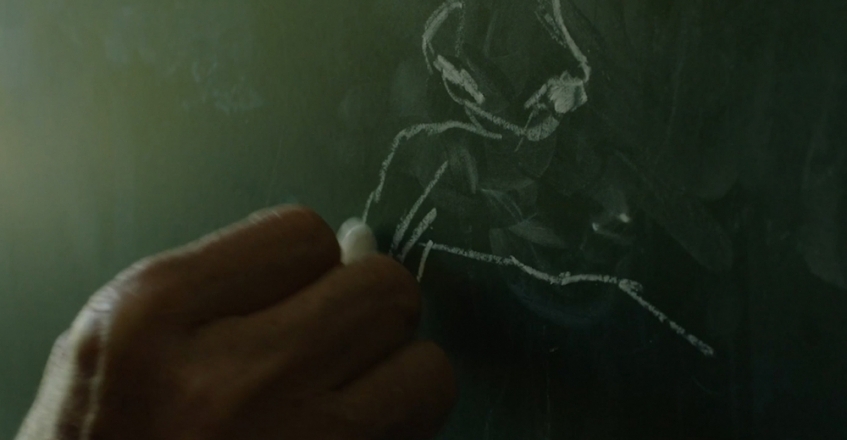Objave
Alban Muja: I Believe That Art Can Work Miracles
Alban Muja is a Kosovan visual artist and filmmaker who spends his time between Prishtina and Berlin. Muja represented the Republic of Kosovo at the 58th Venice Biennale with "Family Album," a project exploring displacement and identity.
Alban Muja is a Kosovan visual artist and filmmaker who spends his time between Prishtina and Berlin. Muja represented the Republic of Kosovo at the 58th Venice Biennale with "Family Album," a project exploring displacement and identity. His most recent short documentary film, I BELIEVE THE PORTRAIT SAVED ME, had its premiere in the Forum Expanded programme at the Berlin International Film Festival in 2025 and and at the 31st Sarajevo Film Festival it was screened in the Competition Programme - Documentary Film.
An unusual situation in which the art of drawing saved a life during the war happened to your father. How difficult it was to persuade him to tell the 25-year-old story on camera?
We spoke about those days in fragments, over many years, like gathering shards of a broken mirror. I was always afraid to ask too much.
I carried his story silently inside me. I imagined many ways of telling it, I even recorded him once, long ago, but I could never move forward. I think I was waiting for the moment when his voice and my idea would meet. And I realized that if I waited too long, his memories might fade, and a chapter of our history would vanish with him.
This felt like the right moment, for him and for me, especially nowadays, when we so often witness hunger being weaponized, something my father and his fellow detainees unfortunately endured as well. I wanted not only to share the story of my father, a painter who was detained during the war, but also to reveal the extraordinary thing that saved his life: the act of drawing.
In that strange and harrowing place, a single piece of chalk became his shield, a silent negotiation with fate. Art, in its simplest form, became his tool of survival.
I believe that art can work miracles. It is a testament to human resilience, to the way creativity can bloom even in the most oppressive conditions. And sometimes, it can reach those we believe are unreachable, even the ones holding your life in their hands.
Without the faces of the people anxiously following the creation of the portrait on the school blackboard, you certainly wouldn't have achieved such a strong effect of concern and uncertainty. Who are these people, were they really imprisoned with your father?
This was one of the key questions I asked myself and my team, especially when I was thinking about which medium to use and how to portray the other prisoners in the school that had been turned into a detention camp with my father. In his story, the other detainees were watching him draw in complete silence, almost breathless, because his challenge - the portrait he was asked to create, could also determine their own survival.
Some of the people shown in the classroom were indeed imprisoned with my father, first in the school and later transferred to a prison. To reflect the age range of those who were detained and mistreated men between 18 and 65, we also brought in young people to recreate that balance and capture the atmosphere of fear, uncertainty, and hope that my father described.
All of us who have experienced war know very well the feeling of dehumanization, humiliation and hopelessness. Is art in such circumstances not only a form of quiet, non-aggressive resistance but also one of the ways to endure and survive?
Yes, absolutely. In such moments, art becomes both a silent form of resistance and a tool for survival. It allows you to hold on to your humanity and to hope that even those on the opposite side might be touched by it. Art creates meaning in a place designed to take it away. For my father, drawing was not only an act of hope but also a way to endure the unimaginable.






